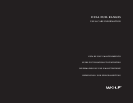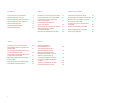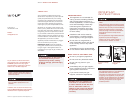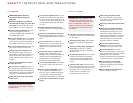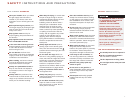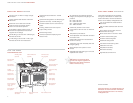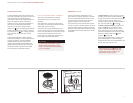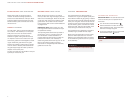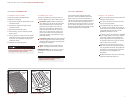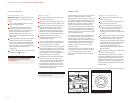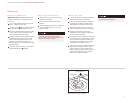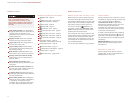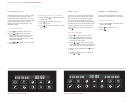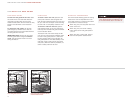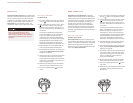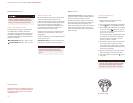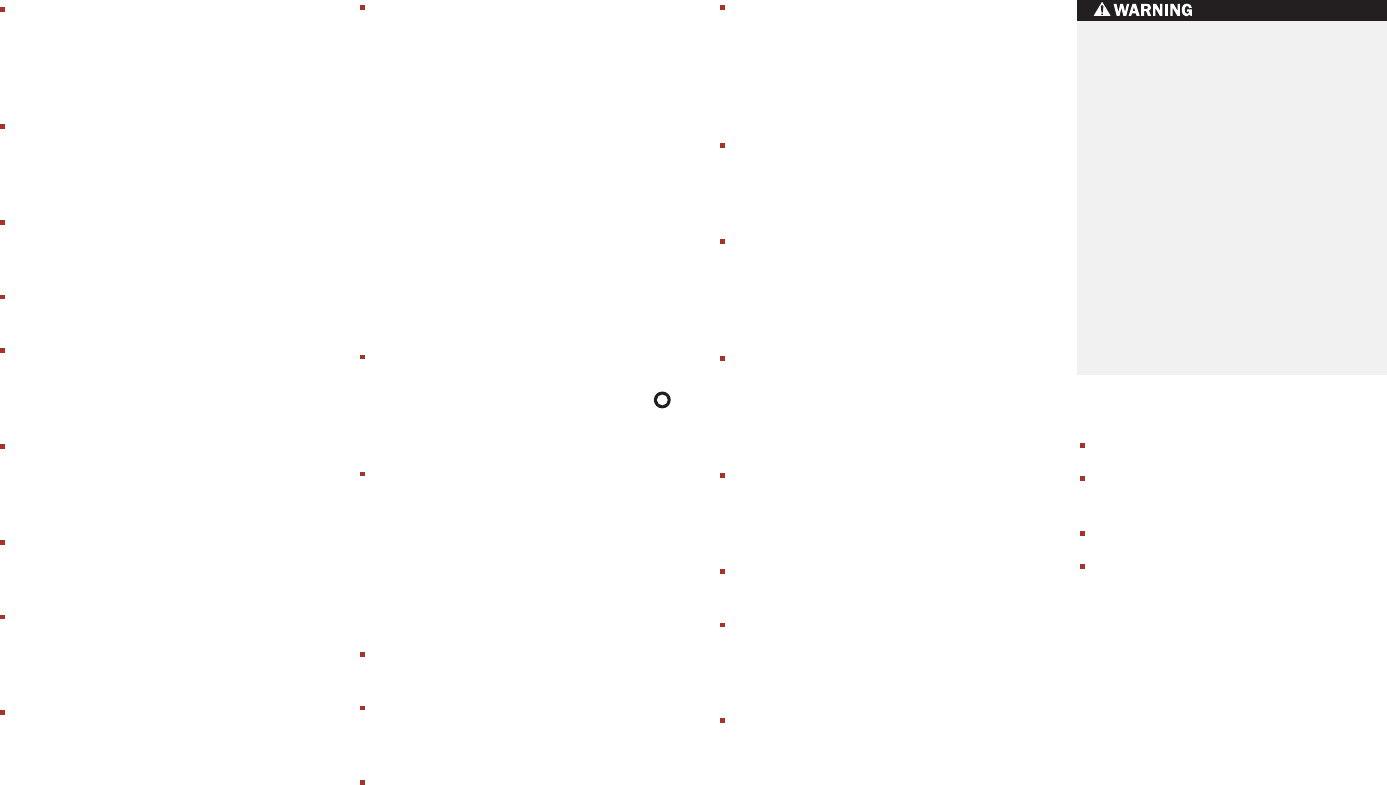
5
SAFETY INSTRUCTIONS AND PRECAUTIONS
USE AN EXTINGUISHER ONLY IF:
You already know how to operate it.
The fire is small and contained in
the area where it started.
The fire department is being called.
You can fight the fire with your back
to an exit.
SAFETY PRECAUTIONS
TO REDUCE THE RISK OF INJURY
TO PERSONS IN THE EVENT OF
A RANGE GREASE FIRE,
OBSERVE THE FOLLOWING:
Smother flames with a close-
fitting lid, baking sheet or other
metal tray; then turn off the gas
burner. Be careful to prevent
burns. If the flames do not go out
immediately, evacuate and call
the fire department.
Do not use water on grease fires.
Never pick up a flaming pan—
you may be burned.
When deep fat frying, be certain that
the pan is large enough to accom-
modate the desired volume of food
without overflow caused by
bubbling of the fat. Never leave a
deep fat fryer unattended. Avoid
deep fat frying of moist or frost-
covered foods, as foods with high
water content may cause spattering
or spilling of the hot fat. Heat fat
slowly, and stir together any combi-
nations of oils and fats prior to
applying heat. Utilize a deep fat
frying thermometer to avoid heating
the fat to temperatures above the
flash point.
Always light each burner prior to
placing a pan on the burner grate.
Also, turn the control knob to the
position before removing a pan from
the burner grate.
Do not clean the range while it is
still hot. If using a damp sponge or
cloth, wait until the range has cooled
sufficiently to prevent steam burns.
Also, some cleaners can produce
harmful or unpleasant fumes if
applied to hot surfaces. Refer to care
recommendations on pages 25–26.
Keep any ventilation filters clean to
avoid grease fires.
Always set pans gently onto the
grates and center them so that they
are well balanced.
Do not allow aluminum foil, plastic,
paper or cloth to come in contact
with a hot burner or grate. Do not
allow pans to boil dry.
Start the ventilation hood approxi-
mately five minutes before cooking
on the range or top surface burners;
this establishes an air curtain, and
improves the capture of vapor and
moisture.
Do not cover the burners and grates
with anything except properly
selected utensils. Decorative covers
should not be used.
Wear proper apparel. Never let loose
clothing or other flammable materi-
als come in contact with the burners
while in operation. Fabric may ignite
and cause personal injury.
When using the range, do not touch
the grates, burner caps, burner
bases or any other parts in proximity
to the flame. These components
may be hot enough to cause burns.
If the range is near a window, do
not use long curtains as a window
treatment, as they could blow over
the range and create a fire hazard.
Boilovers and greasy spills may
smoke or ignite.
Do not store or use gasoline or
other flammable vapors and liquids
in the vicinity of this or any other
appliance.
Choose pans with easily grasped
handles that will stay cool while
cooking.
TOP SURFACE BURNERS
Have your installer show you where
the gas supply shut-off valve is
located in your home. Learn how
and where to turn off the gas to the
range.
Before performing any service, turn
off the gas supply by closing the gas
shut-off valve and turn off the elec-
tricity to the oven.
Keep igniters clean and dry for
proper lighting and performance of
the burners.
Keep appliance area clear and free
from combustible material.
In the event that a burner goes out
and gas escapes, open a window or
a door. Wait at least five minutes
before using the unit.
Do not obstruct the flow of air.
Your kitchen must have an adequate
supply of fresh air to ensure proper
combustion and ventilation.
When cooking, set burner controls
so that the flame does not extend
beyond the bottom of the pan.
Always turn panhandles inward so
they do not extend over adjacent
work areas, burners or the edge of
the range.
Always check the positions of the
control knobs to make certain the
range or top surface burners are off
when you are finished cooking.



